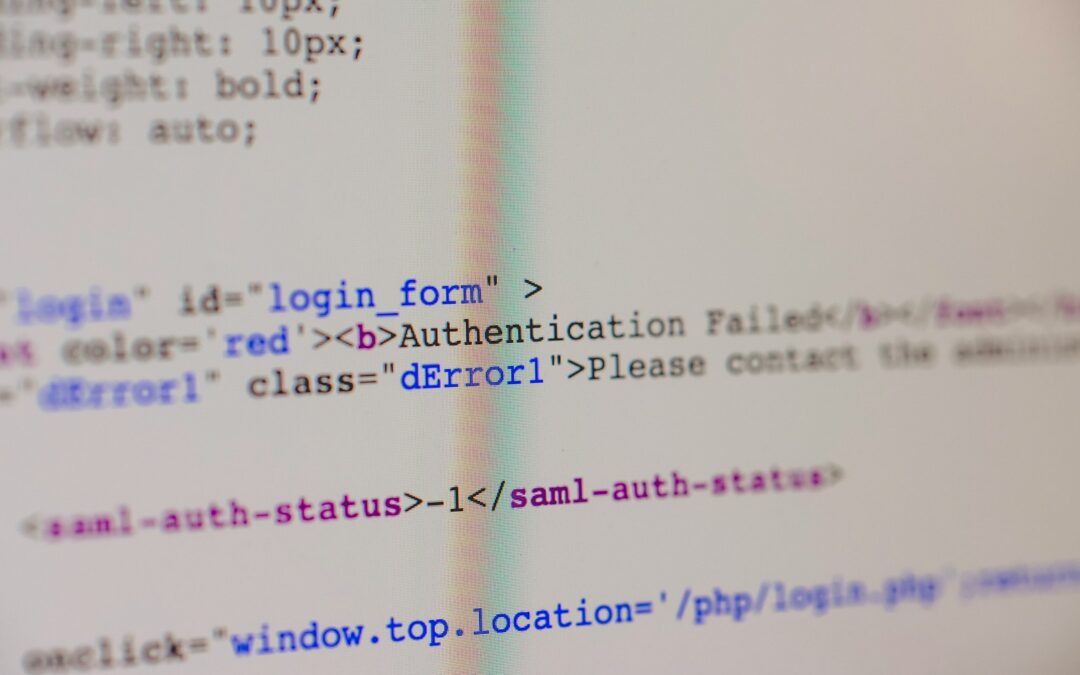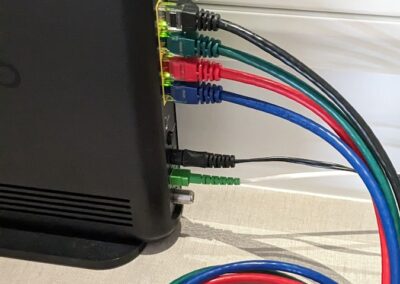Understanding the Risks of Weak Authentication in IoT Networks
The Prevalence of Security Vulnerabilities
Discover the importance of IoT authentication protocols in securing IoT networks. Learn how robust authentication mechanisms, such as multi-factor authentication, blockchain technology, and AI, can protect against vulnerabilities and ensure the integrity of IoT systems in Saudi Arabia and the UAE.
The Internet of Things (IoT) has revolutionized various sectors, including healthcare, manufacturing, and smart cities, particularly in tech-forward regions like Saudi Arabia and the UAE. However, the rapid adoption of IoT networks has also introduced significant security vulnerabilities, primarily due to weak authentication protocols. These vulnerabilities can lead to unauthorized access, data breaches, and manipulation of IoT devices. For example, in a smart city setup in Riyadh or Dubai, compromised IoT devices can disrupt essential services, posing risks to both infrastructure and citizen safety. Addressing these vulnerabilities is crucial for maintaining the integrity and security of IoT ecosystems.
The Implications of Weak Authentication
Weak authentication protocols in IoT networks can have far-reaching implications. In the healthcare sector, for instance, unauthorized access to medical devices can compromise patient data and even manipulate device functions, endangering lives. Similarly, in industrial settings, weak authentication can lead to the sabotage of machinery, resulting in operational downtime and financial losses. In Dubai and Riyadh, where smart city initiatives are gaining momentum, the security of IoT devices becomes even more critical. Therefore, robust authentication mechanisms are essential to safeguard sensitive data and ensure the reliable operation of IoT networks across various sectors.
Case Studies Highlighting Vulnerabilities
Several case studies underscore the importance of strong authentication in IoT networks. In one notable instance, a large-scale cyberattack exploited weak authentication protocols to gain control over smart home devices, leading to widespread privacy breaches. Another case involved the compromise of industrial IoT devices in a manufacturing plant, resulting in significant production delays and financial losses. These incidents highlight the urgent need for robust authentication mechanisms to protect IoT networks from similar vulnerabilities. In tech-savvy regions like Saudi Arabia and the UAE, implementing strong security measures is paramount to maintaining trust and ensuring the success of IoT deployments.
Implementing Robust Authentication Mechanisms
Adopting Multi-Factor Authentication
One of the most effective ways to enhance IoT security is through multi-factor authentication (MFA). MFA requires users to provide multiple forms of verification before gaining access to IoT devices, significantly reducing the risk of unauthorized access. This approach can involve a combination of something the user knows (like a password), something the user has (like a security token), and something the user is (like a fingerprint). In regions like Dubai and Riyadh, where IoT applications are expanding rapidly, implementing MFA can provide an additional layer of security, ensuring that only authorized individuals can access and control IoT devices.
Leveraging Blockchain Technology
Blockchain technology offers a decentralized and tamper-proof solution for managing IoT authentication. By using blockchain, IoT networks can record and verify authentication processes in a secure and transparent manner. This technology ensures that any attempt to alter authentication data is immediately detectable, enhancing the overall security of IoT systems. For businesses in Saudi Arabia and the UAE, adopting blockchain for IoT authentication can significantly mitigate the risks associated with weak protocols. Blockchain’s immutable ledger provides a reliable method for tracking and verifying device interactions, ensuring the integrity of IoT networks.
Incorporating AI and Machine Learning
Artificial Intelligence (AI) and Machine Learning (ML) can play a crucial role in strengthening IoT authentication protocols. AI and ML algorithms can analyze patterns of device usage and identify anomalies that may indicate unauthorized access attempts. By continuously monitoring IoT networks, these technologies can provide real-time alerts and responses to potential security threats. In tech-advanced cities like Riyadh and Dubai, integrating AI and ML into IoT security strategies can enhance the ability to detect and respond to vulnerabilities swiftly. This proactive approach ensures that IoT networks remain secure and resilient against evolving cyber threats.
Conclusion
In conclusion, the integration of IoT devices into various sectors offers numerous benefits but also introduces significant security challenges. Weak authentication protocols pose substantial risks, including unauthorized access, data breaches, and operational disruptions. To mitigate these vulnerabilities, it is essential to implement robust authentication mechanisms such as multi-factor authentication, blockchain technology, and AI-driven security solutions. For regions like Saudi Arabia and the UAE, where IoT adoption is on the rise, ensuring the security and integrity of IoT networks is paramount. By adopting advanced security measures, businesses and governments can safeguard their IoT investments and ensure the successful deployment of IoT technologies.
—
#IoTAuthenticationProtocols #IoTSecurity #Cybersecurity #SmartCitySolutions #BusinessSuccess #AIinCybersecurity #BlockchainForIoT #GenerativeAI #DigitalTransformation #ExecutiveCoaching #LeadershipInIoT #ProjectManagement #SaudiArabiaTech #UAEIoT #RiyadhSecurity #DubaiInnovation































